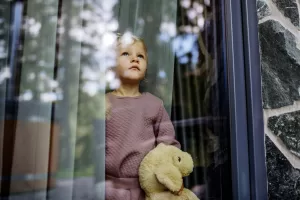What is "little t" trauma and why does it matter?
You don’t need to live through a war zone, survive a serious accident, or face a natural disaster to be affected by trauma. Sometimes, the most lingering wounds are the quietest—the everyday emotional cuts that don’t bleed but leave lasting marks. These are known as “little t” traumas, and they matter more than most people realize.
In a world that often glorifies toughness and minimizes emotional pain, many adults walk around carrying the invisible weight of these smaller, yet deeply impactful experiences. And while they might seem minor on the surface, these traumas can shape our self-worth, affect our relationships, and quietly deteriorate our mental health over time.
So, what exactly is little t trauma, and why should we be paying attention to it?
What is “little t” trauma? Exploring the quiet disruptors of mental health
In psychology, trauma is often divided into two general categories: “Big T” and “little t.” While Big T traumas include events like physical assault, combat, or major accidents—what many people traditionally associate with post-traumatic stress—little t trauma are less obvious events or experiences but can be just as emotionally damaging.
Examples of little t trauma might include:
Being frequently criticized or shamed by a caregiver
Going through a painful breakup
Being bullied or socially excluded
Chronic feelings of not being good enough
Experiencing ongoing stress at without support
Growing up in a home where your emotional needs were not met
These types of experiences can lead to anxiety, depression, relationship issues, and even trauma–related symptoms. What makes them especially tricky is that they often go unrecognized—by others and by ourselves.
Why does little t trauma matter? The big impact of small moments
Little t trauma matters because it doesn’t stay small. Here’s how it can shape your life:
Internalized beliefs: Repeated invalidation or criticism can lead to deep-rooted beliefs like “I’m not enough” or “I have to earn love.”
Nervous system activation: Chronic stress, even from subtle sources, keeps the body in a heightened state of alert—fueling anxiety and overthinking.
Relationship patterns: Unresolved trauma can lead to insecure attachment styles or relationship anxiety.
Avoidance of vulnerability: People may avoid emotional intimacy or connection out of fear of being hurt again.
Shame and self-doubt: Without understanding the root of their struggles, people often blame themselves for their symptoms or behaviors.
The truth is, you don’t need a dramatic event to justify seeking help. Emotional pain is valid, even if others can’t see it.
An example of experience with little t trauma
A person who always described their childhood as “fine.” They had a roof over their head, food on the table, and attended a good school. But as an adult, they found themselves constantly anxious, emotionally reactive, and prone to burnout. In counselling, they began to unpack memories of feeling consistently dismissed by their parents. Their achievements never felt like they were enough. Their emotions were often ignored or labeled as “too much.”
No one ever yelled or hit them. But the consistent emotional neglect had left deep, unresolved wounds—classic little t trauma.
Through therapy, they learned to name their experiences for what they were. With the support of counselling, they began healing from the emotional distress they hadn’t even realized they were carrying.
FAQ: “Can little t trauma really cause PTSD-like symptoms?”
Yes—while not everyone who experiences little t trauma develops PTSD, these experiences can contribute to symptoms such as hypervigilance, emotional numbness, difficulty trusting others, or flashbacks (especially when linked to childhood emotional neglect). The brain and body respond to emotional pain whether the threat is physical or psychological.

How can therapy help with little t trauma?
The good news is that healing is absolutely possible. Many people find deep transformation by addressing their past with the right tools and support. Therapies that can be particularly effective for little t trauma include:
Cognitive behavioural therapy (CBT) to address negative thought patterns
Acceptance and commitment therapy (ACT) to help increase emotional flexibility
EMDR therapy for processing past events that feel stuck in the body
Narrative therapy and inner child work to reframe early experiences
Supportive counselling offers a space to name the pain, build self-compassion, and develop healthier emotional habits. If you’re unsure where to start, learning about choosing a therapist can guide your first steps.
Reflection question
Have you ever minimized your own pain because it didn’t seem “bad enough”? If so, you’re not alone. Many adults carry unresolved little t traumas that affect their emotional well-being every single day.
So let me ask you—what stories from your past might be asking to be heard, validated, and healed?
Final thoughts: you are allowed to feel, heal, and grow
Little t trauma is a powerful reminder that trauma isn’t always about what happened—it’s about how it made you feel, especially if your pain was ignored or invalidated.
If you’re struggling with anxiety, relationship issues, burnout, or a persistent sense of not being enough, there may be roots in your earlier experiences that deserve compassion and care. Whether your trauma is big or small, it matters.
Your pain is valid. Your healing is possible. And your story deserves to be told.
If you’re ready to take the first step, consider reaching out for support.
Disclaimer:
The information provided in this post and across this website does not, and is not intended to, constitute medical, mental health, or therapeutic advice; instead, all information, content, and materials available on this site are for general informational purposes only. This information does not create any therapeutic relationship and should not be used as a substitute for professional diagnosis and treatment. Consult with a licensed mental health provider for advice or support regarding diagnosis and treatment.
Get started with mental health therapy
Schedule your consultation today to see if we're a fit
Psychologist in Edmonton | Contact Us
Mendable Psychology | Edmonton Psychologists | Mental Health Counselling
Office located in Mayfield West Edmonton
- (587) 415-0850
- 10458 Mayfield Rd NW, Edmonton, AB
- info@mendable.ca
- Schedule online
Read more from our blog

Can Therapy Make You Feel Worse?
Can Therapy Make You Feel Worse? When mental health therapy doesn’t leave you feeling great Therapy is often hailed as a powerful tool for personal

Mental Health Spiral
Navigating a Mental Health Spiral How to cope with a downward spiral, tolerate distress, and reduce overwhelm Spiraling mental health? In mental health discussions, you

Childhood Emotional Neglect
Childhood Emotional Neglect Understanding the impacts of emotional neglect from childhood Childhood emotional neglect is a profoundly impactful yet often overlooked aspect of a person’s